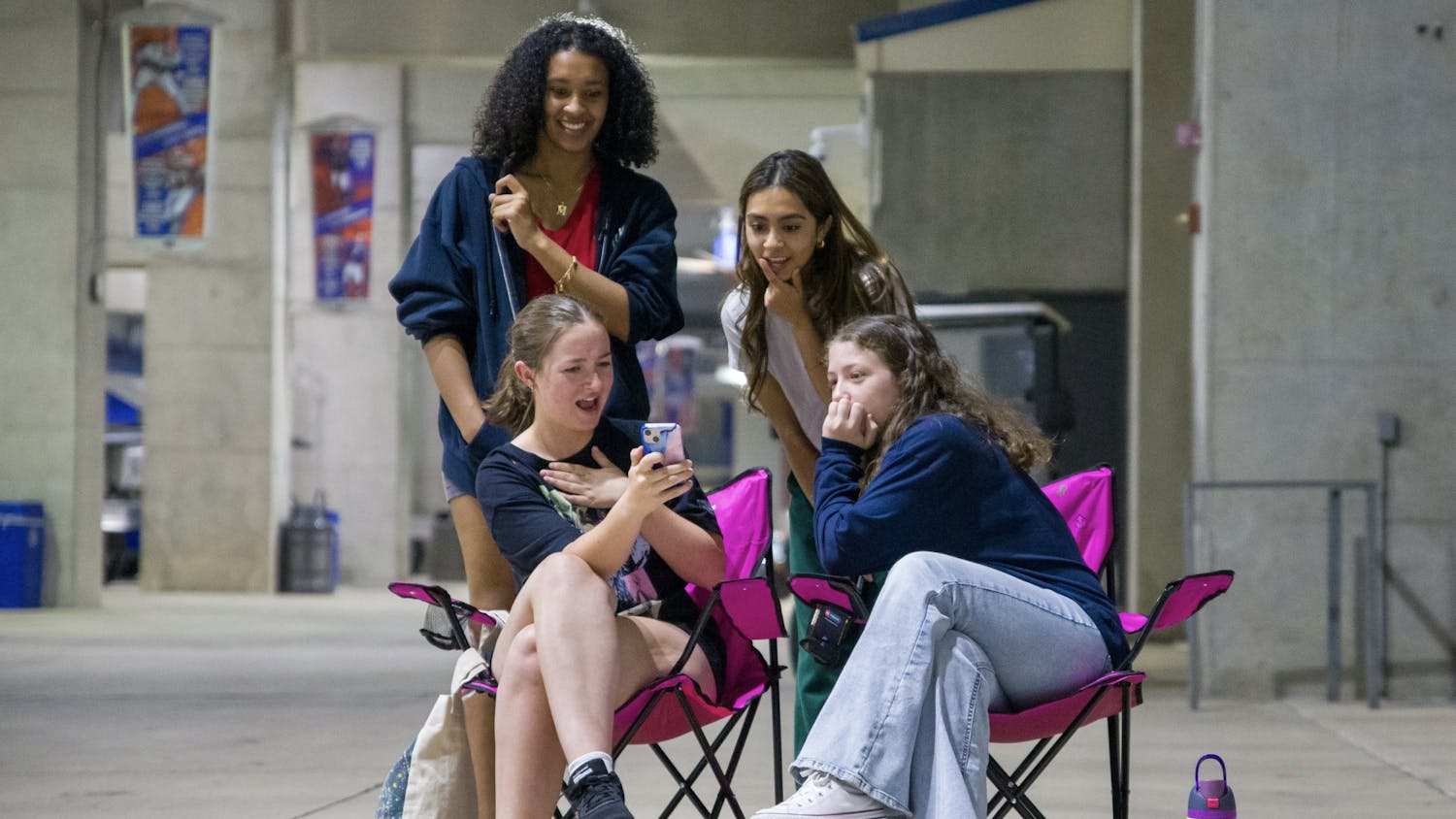It was just a gravel driveway in front of a Central Florida middle-class house.
But Clarence Anthony Jr. said he’ll never forget it.
Standing near the white limestone surface, his guide told how a crew of migrant workers was imprisoned there in a parked cargo truck at night.
“You never know what could be happening at something that just looks ordinary,” said Anthony, 24.
The first-year UF counselor education doctoral student piled into a minivan with several other UF students to visit Immokalee, an agricultural community about five hours south of Gainesville.
While the town could be perceived as ordinary at first glance, it is notable for its tomato production and cases of human rights violations in recent years. The group visited last weekend.
Students spent two days exploring the town and significant sites of day-to-day life for migrant workers. The trip was in partnership with the Coalition of Immokalee Workers, a worker-led human rights group based in the town.
Stephanie Gomez, a 25-year-old first-year Latin American studies graduate student at UF, said the group visited an agricultural field where workers harvest crops.
Even though the field was empty and covered with protective plastic for the off-season months, Gomez said viewing the environment firsthand painted a vivid picture of what life as a laborer is like.
“There’s no shelter,” she said. “You’re really out in the elements.”
The group also visited a paved lot where workers congregate at 5 a.m. most days to wait for school-bus transportation to the fields.
Daniella Lopez, a 21-year-old UF English and philosophy senior, said she watched a bus return to its launching pad in the late afternoon.
She said the workers streamed out from the back hatch of the bus, many wearing sweat-soaked T-shirts and wide-brimmed cloth hats for protection from the sun.
“They looked so tired,” she said.
Anthony said the homes most of the workers return to are trailers clustered within walking distance of the parking lot.
Lopez described most of the trailers as “weather-stricken,” lacking paint and sagging from age and exposure.
Around the houses, residents used trees and wires to dry laundry in the humidity.
“It doesn’t look like you’re in the U.S.,” Lopez said. “It’s like a different country almost.”
Gomez, however, said Immokalee’s housing epicenter reminded her of her family’s home in Chicago’s Pilsen neighborhood, characterized by a vibrant community, blaring Latino music and mom-and-pop Hispanic grocery stores.
Gomez said she saw men grouped on front porches enjoying Saturday afternoon beers, a mom pushing a child in a stroller toward the grocery store, and youths meandering and listening to music.
“You know people don’t have a lot of money, but they still have a lot of life,” she said.
Despite that, Gomez said, a sense of normalcy filled the trailer park.
“They’re not sitting around there going ‘Woe is me,’” she said. “It’s very normal because they live it.”
During the trip, the students also got to experience how it feels to harvest tomatoes.
Lopez said a community center worker directed her to grasp a blue 32-pound bucket filled with bags of rice to simulate the weight of tomatoes.
She hoisted the bucket onto her shoulder and was required to run 100 feet to dump the contents out.
Lopez said she struggled with the feat, but she wasn’t the only one.
“Even the big people — strong guys — had trouble with it,” she said.
Considering the difficulty involved, Lopez said she estimated $5 per bucket would be a reasonable wage to pay workers.
When she learned workers are actually paid 35 cents per bucket and try to fill at least 100 buckets per day, “my mouth dropped,” she said.
Gomez said the weekend experience was thought-provoking overall.
“A lot of us were really quiet because we were processing what was going on,” Gomez said.
She said gaining firsthand insight into the daily lives of agricultural workers in Immokalee was valuable because consumers often don’t understand the human element that goes into production.
“We’re all connected to it, and we don’t know anything about it,” Gomez said. “It does something when you talk to people who live it.”





